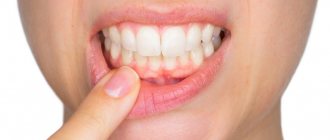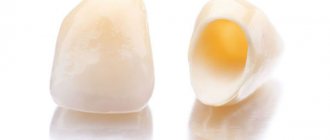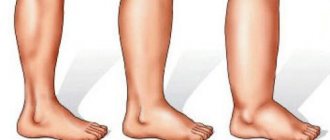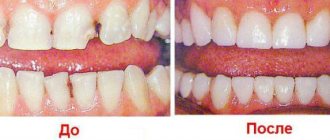sour taste in mouth
heartburn
gastritis
If a person, without consuming any food or drink, feels a dubious taste in his mouth other than a neutral one, then this, with a 90% probability, indicates the development of abnormalities in the digestive system. Depending on the nature of the pathological changes, the taste can be sour, sweet or bitter. If this symptom occurs, immediate consultation with a gastroenterologist is recommended, and in some cases, consultation with an endocrinologist or hepatologist may be required.
Causes
Why fetid ozena occurs has not been reliably established. The mechanism of its development is based on a violation of the blood supply to the mucous membrane in the nose and its innervation, and this condition can be a consequence of:
- congenital pathologies of the respiratory system (increase in the size of the nasal passages, underdevelopment of the paranasal sinuses, etc.);
- advanced inflammation of the nasal cavity (rhinitis, sinusitis);
- bacterial lesions;
- traumatic injury to the nose and paranasal sinuses;
- diseases of the immune system;
- surgical interventions - removal of foreign bodies, surgery to correct a deviated nasal septum, adenoidectomy, conchotomy (partial or complete removal of the nasal mucosa);
- severe infectious diseases;
- genetic dystrophy of the upper respiratory tract;
- hormonal disorders (most often nasal congestion develops in women during puberty, pregnancy and menopause);
- pathologies of the digestive system;
- poor nutrition;
- climatic influences (fetid runny nose occurs more often in people living in countries with a dry, hot climate).
More than 60% of patients diagnosed with ozena disease are infected with Abel-Levenberg bacillus, a bacterium from the genus Klebsiella. Many patients also have iron deficiency anemia.
Medical causes of metallic taste
If a metallic taste appears in the mouth, this may indicate illness. Their list is very extensive. To make it easier to classify, diseases can be divided into two groups: dental and non-dental.
Diseases that lead to a metallic taste, which are systemic in nature and are not associated with teeth and gums, are as follows:
- diseases of the ENT organs (sinusitis, otitis, laryngitis, etc.);
- lung diseases (pneumonia, tuberculosis);
- diseases of the gastrointestinal tract (gastritis, cholecystitis);
- diseases affecting the nervous system (sclerosis, tissue tumors);
- anemia due to deficiency of iron or B vitamins.
It is not uncommon for a metallic taste to accompany diseases that develop in the oral cavity. These include:
- stomatitis (the mucous membrane of the oral cavity becomes inflamed, which is often accompanied by the formation of small ulcers);
- gingivitis (inflammation of the gums);
- periodontitis (the disease appears as a result of advanced gingivitis, when the infection no longer affects the external tissues, but the periodontium);
- glossitis (formation of plaque on the tongue, its inflammation).
Another common cause of taste associated with the oral cavity and dentistry is the installation of crowns and dentures. The appearance of a taste in this case is normal, provided that it goes away within 1-2 months. A sign that adaptation to the structure in the mouth has not occurred is unpleasant sensations in the form of tingling of the tongue, burning, and a feeling of dryness.
Ozena symptoms
The disease develops slowly, but has a progressive course. At first, constant viscous transparent discharge from the nose begins to bother you, gradually it becomes yellow-green or brown, an admixture of pus is added, and crusts appear in the nose. A characteristic symptom of ozena is the unpleasant odor of exudate. After removing the crusts, it disappears, but after the formation of new crusts it appears again.
The smell becomes so strong that even those around you can smell it. But the patient himself gradually loses his sense of smell (hyposmia develops), since the olfactory receptors in the nose are affected. The crusts become larger, they are difficult to remove, and therefore make nasal breathing difficult.
Other main symptoms of ozena:
- dry nose;
- frequent nosebleeds;
- headache;
- asthenia;
- prostration;
- sleep disorders;
- violation of taste sensitivity.
Metallic taste in the mouth of people of different sexes
A number of reasons that cause the sensation of metal are divided by gender.
For men who work in mining or in industries that use heavy metals, an iron taste may appear during each shift and disappear after the end of the shift. Long-term wearing of massive metal objects (bracelets, watches) also leads to a similar result, since during prolonged contact with the skin the concentration of ions entering the blood through the pores becomes too high.
Women may experience a metallic taste due to:
- pregnancy. Many expectant mothers note that a metallic taste periodically appears during pregnancy. Why does this happen? Firstly, the matter may be a lack of microelements and vitamins, and secondly, changes in hormonal levels and malfunctions in the functioning of receptors that recognize taste can be to blame;
- the use of weight loss drugs and various biological additives, which often leads to poisoning due to incorrect dosages and the desire to quickly get the most pronounced result possible;
- insufficient amount of fluid consumed (women resort to this remedy to lose weight and get rid of swelling). A metallic taste is one of the signs of dehydration.
It is best to start combating this not very pleasant feeling by visiting a doctor who will prescribe the necessary tests and examinations. Otherwise, you can look for reasons on your own and continue to experience discomfort regularly for a very long time.
Complications
As a result of a person swallowing purulent nasal discharge, problems with the gastrointestinal tract often arise - bloating, nausea, loss of appetite, strong smell of feces.
If there is no treatment for a foul runny nose, sinusitis, pharyngitis, sinusitis, blepharitis, laryngitis, tracheitis, otitis, dacryocystitis, and conjunctivitis may develop. There are known cases of damage to the auditory nerve and decreased hearing function.
Due to bone tissue atrophy, deformation of the external nose is possible, the so-called duck shape is formed.
If the atrophic process affects the nasopharynx and trachea, hoarseness and an obsessive cough appear.
Metal taste as a symptom of oral diseases
Patients with gum problems often complain of a strong metallic taste that occurs repeatedly throughout the day. The most popular diseases that provoke such unpleasant sensations include periodontitis and gingivitis, which are accompanied by bleeding gums, and many people describe the taste of blood as metallic. It usually appears during brushing your teeth and after eating. Some patients feel as if there is a foreign body in the mouth, which causes serious inconvenience.
Loose teeth and tartar build-up can also cause a metallic taste. There is no point in trying to independently identify the causes - it is better to immediately contact a dentist.
Diagnostics
Diagnosis of ozena disease is usually not difficult, given the presence of crusts in the nose and the specific odor that occurs only with this form of atrophic rhinitis.
To confirm the diagnosis, rhinoscopy, cytological or histological studies are performed, during which the following disorders are revealed:
- expansion of the nasal cavity;
- the presence of a thick, purulent secretion;
- thinning of the mucosa;
- reduction in the number of mucous glands;
- underdevelopment of cavernous tissue.
The bone tissue of the walls and turbinates of the nose becomes thinner and can be replaced by connective tissue.
Bacteriological culture allows to identify ozenous Klebsiella. A clinical blood test is performed to determine iron levels. In some cases, the doctor additionally prescribes a computed tomography or radiography of the paranasal sinuses.
Metal structures in the mouth
After installing braces and crowns, dentists warn patients about the possible appearance of a metallic taste - this is a normal phenomenon that should subside within a week after the procedure. If this period has passed, and discomfort still makes itself felt, the reasons may be as follows:
- allergy to metal. It is very rare, but taking an allergy test will not be superfluous. If the suspicion is confirmed, the only solution will be a complete replacement of all installed structures;
- galvanism (interaction between metals), which occurs in the case of installation of orthopedic structures made of different materials that interact with each other. If all the crowns and posts are made of the same material and the amalgam fillings are replaced, the problem will disappear.
If you have metal dentures or implants, an iron taste may become noticeable after consuming acidic foods and drinks. Accordingly, the presence of piercings on the tongue or lips can also cause a similar effect.
Treatment of ozena
There is no way to completely cure atrophic rhinitis yet. But carrying out symptomatic therapy can significantly alleviate the patient’s condition and increase the duration of the remission period.
Foul-smelling crusts must be regularly removed, for which purpose rinsing the nasal passages with antiseptic agents is prescribed. You can cleanse the nasal passages with a 0.9% solution of sodium chloride (saline), chamomile or calendula decoctions, and soda solution. Ozena medications based on sea salt give good results: Marimer, Aqualor, Aqua Maris, Physiomer, Apicold Prolo.
Before rinsing the nasal cavity, to facilitate the removal of crusts, it is recommended to soften them - introduce turundas with proteolytic enzymes. High efficiency is shown by the introduction into the nasal cavity of Lugol's solution, silver nitrate solution, and oily vitamin solutions.
If a pathogenic pathogen is detected, only a doctor can decide how to treat ozena. He takes into account the sensitivity of the bacterial infection and prescribes local antibiotics for ozena: Baneocin, Bonderm, Bacitracin, Tetracycline, Levomycetin, etc. In some cases, systemic antibacterial therapy is required.
To prevent overdrying of the mucous membrane, you should use moisturizing drops, sprays, gels, for example, Afrin, Isohydronic, No-Sol.
To reduce the atrophic process, oil drops and emollient ointments are used - naphthalene, vaseline, lanolin.
Clinical recommendations for ozena include physiotherapeutic treatment methods: medicinal electrophoresis, short-wave ultraviolet physiotherapy, laser therapy.
In severe cases, the only option is surgery aimed at reducing the width of the nasal passages.
FAQ
Why does ozena appear?
The exact cause of the disease is unknown. There are a number of risk factors that can provoke the development of ozena. The most common are injuries to the nose and paranasal sinuses, advanced inflammation in the nasal cavity. The causative agent of ozena can be a bacterium from the genus Klebsiella.
What are the first signs of ozena?
Ozena is characterized by the formation of crusts, the appearance of viscous discharge with an unpleasant odor, and severe dryness in the nose.
How long does it take to treat ozena?
Fetid runny nose is a chronic disease that has a wavy course. Methods to completely cure it have not yet been developed. Depending on the severity of symptoms, the course of treatment may take up to 20–30 days.
Why there is an iron taste in the mouth: reasons not related to disease
If you notice an iron taste in your mouth, you should not immediately panic: there is a possibility that the unpleasant sensation is not associated with diseases.
It may appear due to:
- drinking mineral water with salts (often this product is enriched to compensate for iron deficiency in the body);
- drinking low quality drinking water (for example, supplied to the home through old rusty pipes);
- tongue piercing (the sensation appears as a result of the metal reacting with certain foods);
- using cast iron and aluminum cookware when preparing and eating food.










